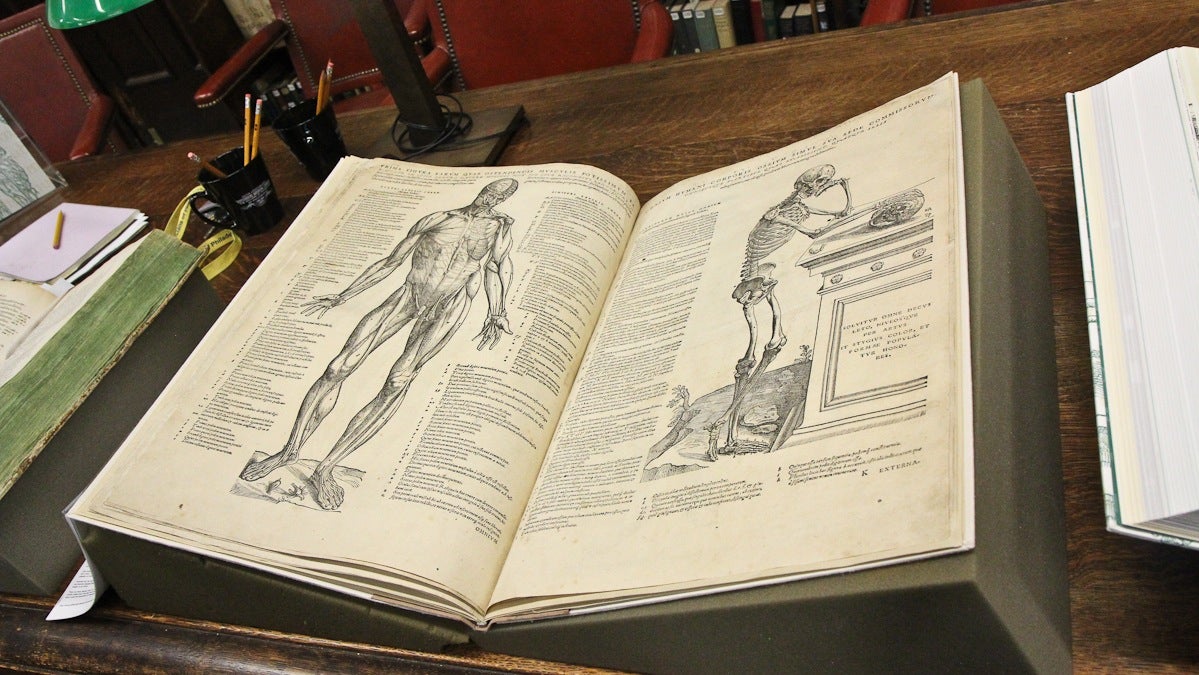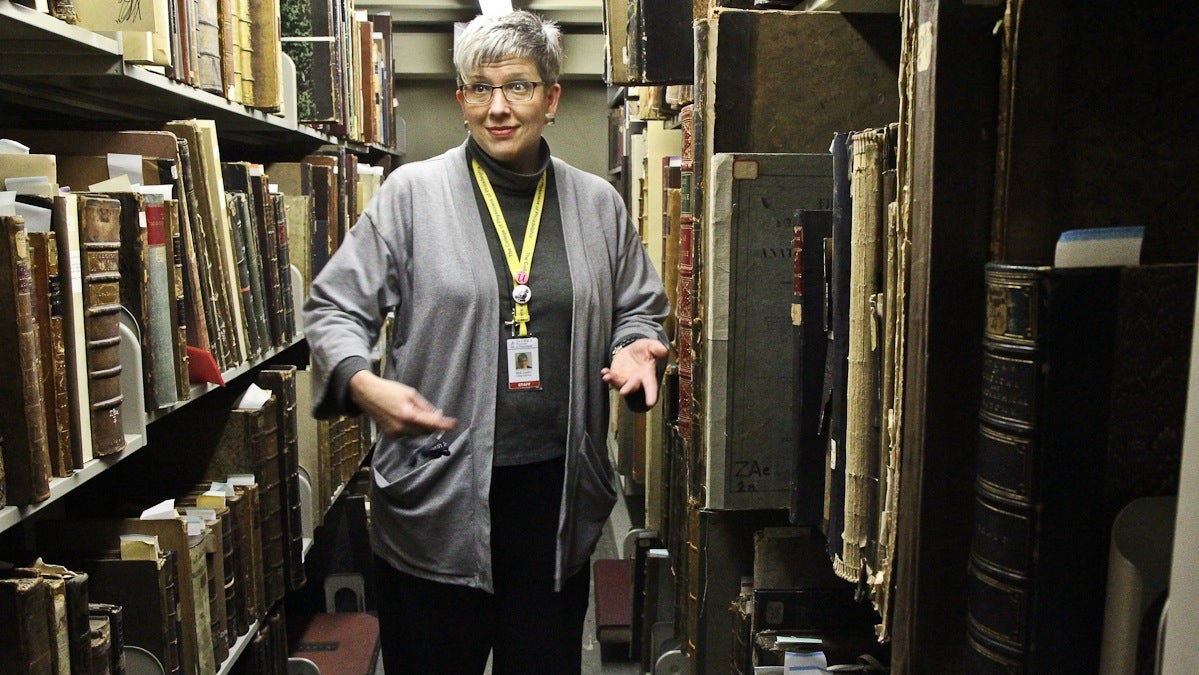Happy 500th birthday, Vesalius! Celebrating the founder of modern anatomy, Mutter style

Andreas Vesalius published 'De humani corporis fabrica' in 1543. (Kimberly Paynter/WHYY)
Philadelphia’s College of Physicians is home to tens of thousands of books on medicine spanning centuries of health and science.
This week, the group will bring out one of its most prized volumes, a nearly 500-year-old book, for a special celebration of the man who wrote it.
Andreas Vesalius was born in Brussels on Dec. 31, 1514, and, according to Jacqui Bowman, he laid the foundation for modern medicine and how doctors today have come to understand the human body.
“He really was the founder of modern anatomy,” says Bowman, director of education at the College of Physicians of Philadelphia (home of the Mutter Museum).
Vesalius rose to fame during “an extraordinary time,” one that was a transitional period out of the Renaissance, when great minds including Copernicus were reassessing the world around them. The printing press also transformed the exchange of those ideas.
When Vesalius entered the scene, he was a young professor of medicine at the University of Padua in Italy, a sort of Harvard of that time.
“I think it may be safe to refer to him as a bit of a rebel,” says Beth Lander, a librarian at the College of Physicians. “He liked to do things his own way.”
The old way of doing things involved looking to books to understand the body … books that were published a thousand years earlier and were based on animal models.
Vesalius, however, brought human cadavers into the anatomy lab, dissecting them with students. He then published a book on his findings in 1543 called “De Fabrica” or On the Fabric of the Human Body.
And yes, the college has an original edition (as well as several republications).
“It is one of the things that when I first started working here, I took it off the shelf, in silence,” says Lander. “I opened it and kind of bowed before it because, as a librarian and as a book freak, it is just an extraordinary thing to behold.” Mutter librarian Beth Lander leads the way to the Vesalius book in the museum. (Kimberly Paynter/WHYY)
Mutter librarian Beth Lander leads the way to the Vesalius book in the museum. (Kimberly Paynter/WHYY)
To celebrate Vesalius’ 500th birthday, the college is putting this book on display at its Mutter Museum as part of a special history of anatomy exhibit. In classic Mutter style, they’re also doing other things — like recreating Vesalius’ dissection table.
The book itself “is massive,” says Lander. It’s more than 3 inches thick. And within its 600-plus pages, are hundreds of really intricate, woodcut illustrations.
Bowman says Vesalius had an artist with him during the dissections to document what they saw.
“There’s a respect for the subject and a wonder, a kind of really seeing how the human body is such an extraordinary, beautiful thing,” says Bowman. “I think [that respect] is sometimes lost these days in medical activities.”
The bodies are often poised in very human ways — set against quaint Italian landscapes. Flipping through the book, Bowman goes straight to the bone section, to an illustration of a skeleton posed like Rodan’s “The Thinker.”
Bowman says as beautiful as the book is, it also points out hundreds of mistakes found in the anatomy books that came before Vesalius.
“Andreas Vesalius was really the original hands-on learner guy. He wanted everybody to learn by observation,” she says. “He really drew the body that was there. He didn’t draw the body that he thought should be there. He drew the body that he saw.”
The medical establishment at the time didn’t embrace Vesalius. As a result, he supposedly burned his notes and dropped out of academia.
Bowman and Lander say he might not have received much acknowledgment at that time, so they’re trying to make his 500th birthday a big deal.
The anatomy exhibit opens this week, with a special family day celebration slated for Jan. 10.
Tune into The Pulse Jan. 2 for more on the remarkable legacy of Andreas Vesalius.
WHYY is your source for fact-based, in-depth journalism and information. As a nonprofit organization, we rely on financial support from readers like you. Please give today.

